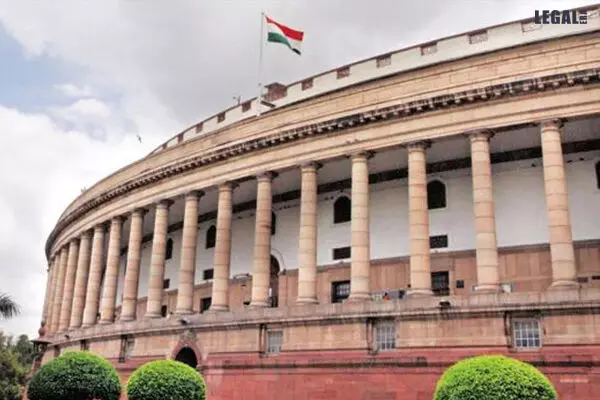- Home
- News
- Articles+
- Aerospace
- Artificial Intelligence
- Agriculture
- Alternate Dispute Resolution
- Arbitration & Mediation
- Banking and Finance
- Bankruptcy
- Book Review
- Bribery & Corruption
- Commercial Litigation
- Competition Law
- Conference Reports
- Consumer Products
- Contract
- Corporate Governance
- Corporate Law
- Covid-19
- Cryptocurrency
- Cybersecurity
- Data Protection
- Defence
- Digital Economy
- E-commerce
- Employment Law
- Energy and Natural Resources
- Entertainment and Sports Law
- Environmental Law
- Environmental, Social, and Governance
- Foreign Direct Investment
- Food and Beverage
- Gaming
- Health Care
- IBC Diaries
- In Focus
- Inclusion & Diversity
- Insurance Law
- Intellectual Property
- International Law
- IP & Tech Era
- Know the Law
- Labour Laws
- Law & Policy and Regulation
- Litigation
- Litigation Funding
- Manufacturing
- Mergers & Acquisitions
- NFTs
- Privacy
- Private Equity
- Project Finance
- Real Estate
- Risk and Compliance
- Student Corner
- Take On Board
- Tax
- Technology Media and Telecom
- Tributes
- Viewpoint
- Zoom In
- Law Firms
- In-House
- Rankings
- E-Magazine
- Legal Era TV
- Events
- Middle East
- Africa
- News
- Articles
- Aerospace
- Artificial Intelligence
- Agriculture
- Alternate Dispute Resolution
- Arbitration & Mediation
- Banking and Finance
- Bankruptcy
- Book Review
- Bribery & Corruption
- Commercial Litigation
- Competition Law
- Conference Reports
- Consumer Products
- Contract
- Corporate Governance
- Corporate Law
- Covid-19
- Cryptocurrency
- Cybersecurity
- Data Protection
- Defence
- Digital Economy
- E-commerce
- Employment Law
- Energy and Natural Resources
- Entertainment and Sports Law
- Environmental Law
- Environmental, Social, and Governance
- Foreign Direct Investment
- Food and Beverage
- Gaming
- Health Care
- IBC Diaries
- In Focus
- Inclusion & Diversity
- Insurance Law
- Intellectual Property
- International Law
- IP & Tech Era
- Know the Law
- Labour Laws
- Law & Policy and Regulation
- Litigation
- Litigation Funding
- Manufacturing
- Mergers & Acquisitions
- NFTs
- Privacy
- Private Equity
- Project Finance
- Real Estate
- Risk and Compliance
- Student Corner
- Take On Board
- Tax
- Technology Media and Telecom
- Tributes
- Viewpoint
- Zoom In
- Law Firms
- In-House
- Rankings
- E-Magazine
- Legal Era TV
- Events
- Middle East
- Africa
Lok Sabha Passes Jan Vishwas Bill to Boost Ease of Doing Business

Lok Sabha Passes Jan Vishwas Bill to Boost Ease of Doing Business
The Lok Sabha during its monsoon session of the parliament has passed the Jan Vishwas (Amendment of Provisions) Bill, 2023, with the aim of promoting ease of doing business in the country.
During the bill passing session, Minister of Commerce and Industry Piyush Goyal said it will promote the ease of doing business by decriminalising a number of provisions.
The Jan Vishwas (Amendment of Provisions) Bill proposes to amend the following Acts- The Press and Registration of Books Act, 1867, Indian Post Office Act, 1923, The Indian Forest Act, 1927, The Copyright Act, 1957, The Environment (Protection) Act, 1986, the Public Liability Insurance Act, 1991, and the Information Technology Act, 2000 among others.
The bill seeks to decriminalize 183 provisions across 42 central legislations administered by 19 ministries.
Decriminalization is proposed to be achieved in the following manner:
(i) Both Imprisonment and/or Fine are proposed to be removed in some provisions.
(ii) Imprisonment is proposed to be removed and fine retained in few provisions.
(iii) Imprisonment is proposed to be removed and Fine enhanced in few provisions.
(iv) Imprisonment and Fine are proposed to be converted to Penalty in some provisions.
(v) Compounding of offences is proposed to be introduced in few provisions.
Besides decriminalization of minor offenses, the Bill envisages the rationalization of monetary penalties. It proposes a 10 per cent increase in the minimum amount of fine and penalty levied, after every three years of enactment of the Act.
It also empowers the central government to appoint one or more Adjudicating Officers for determining penalties.
The Bill omits all the offences under Indian Post Office Act, 1898 and decriminalizes offences under the High Denomination Bank Notes (Demonetisation) Act, 1978.
The bill was first introduced in December 2022 and subsequently referred to the joint committee of the parliament. The Bill was sent to a Joint Committee of both Houses on 22 December 2022. The report was presented in Lok Sabha on 20 March, 2023.
The parliamentary committee had urged the government to encourage states and union territories to take up decriminalizing minor offenses along the lines of Jan Vishwas Bill, to promote ease of doing business in the country.
The enactment of this legislation would be a landmark in the journey of rationalizing laws, eliminating barriers and bolstering growth of businesses. The legislation is expected to serve as a guiding principle for future amendments in various laws. Consolidated amendments in various laws with a common objective will save time and cost for both Government and Businesses alike.



